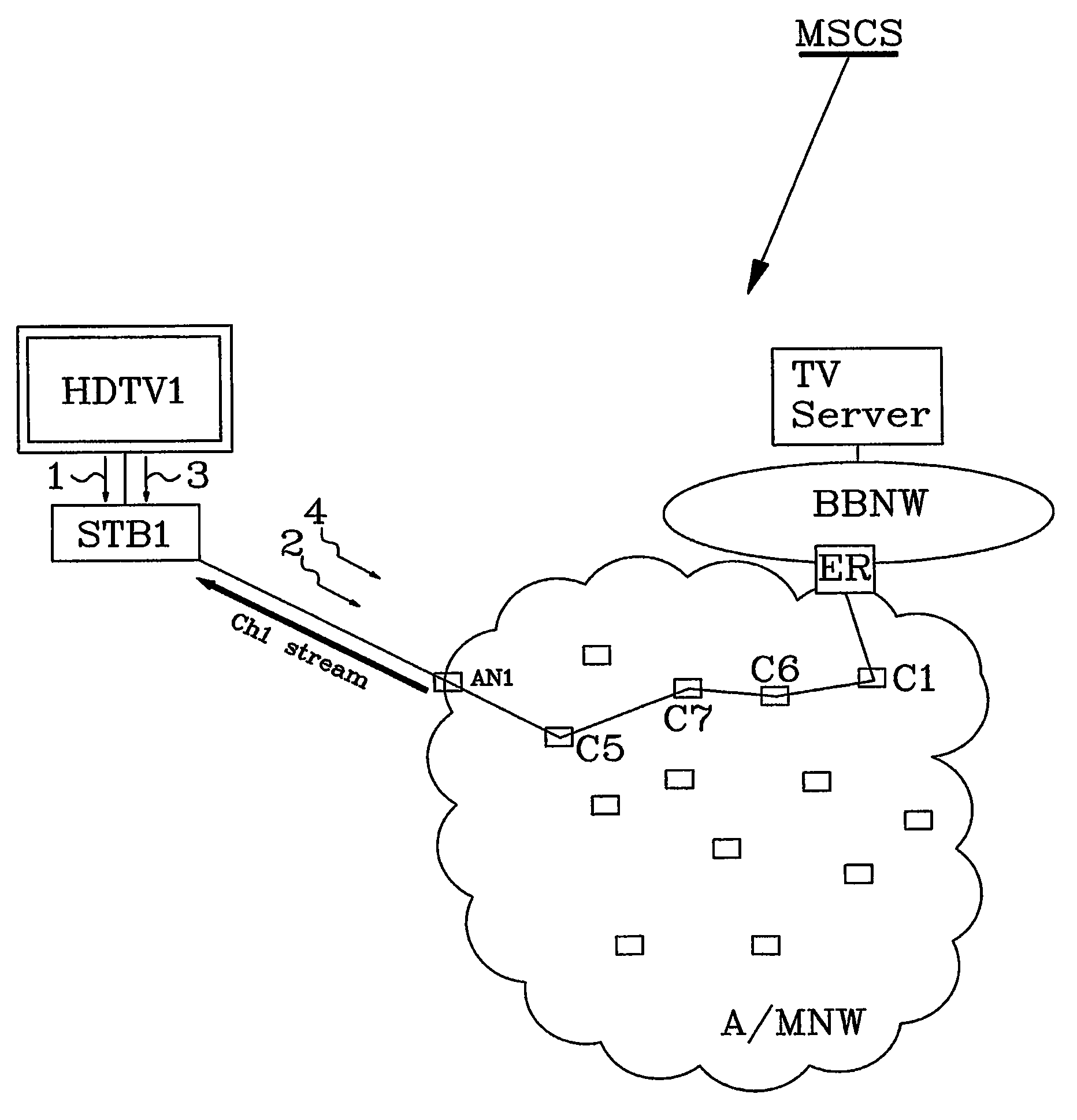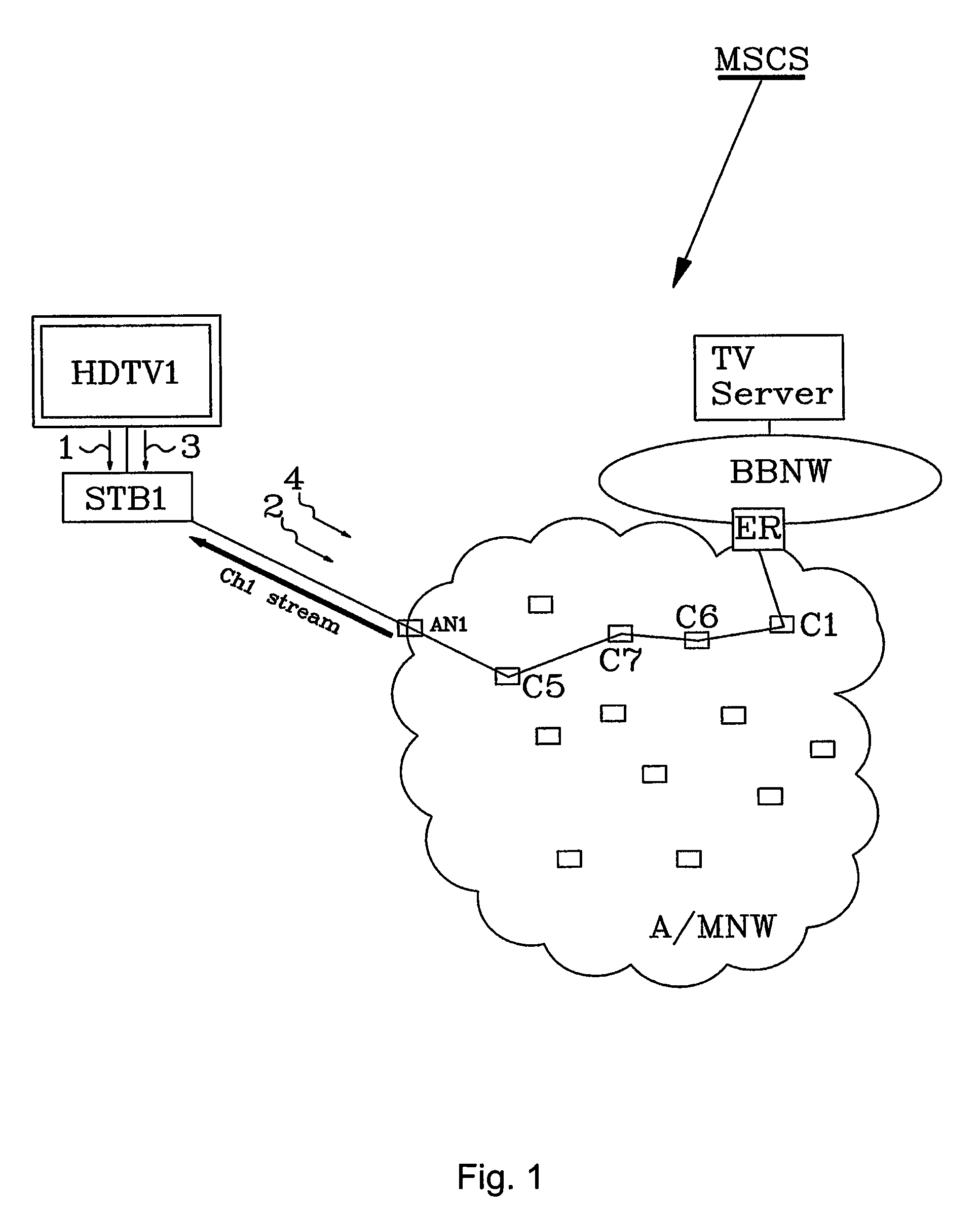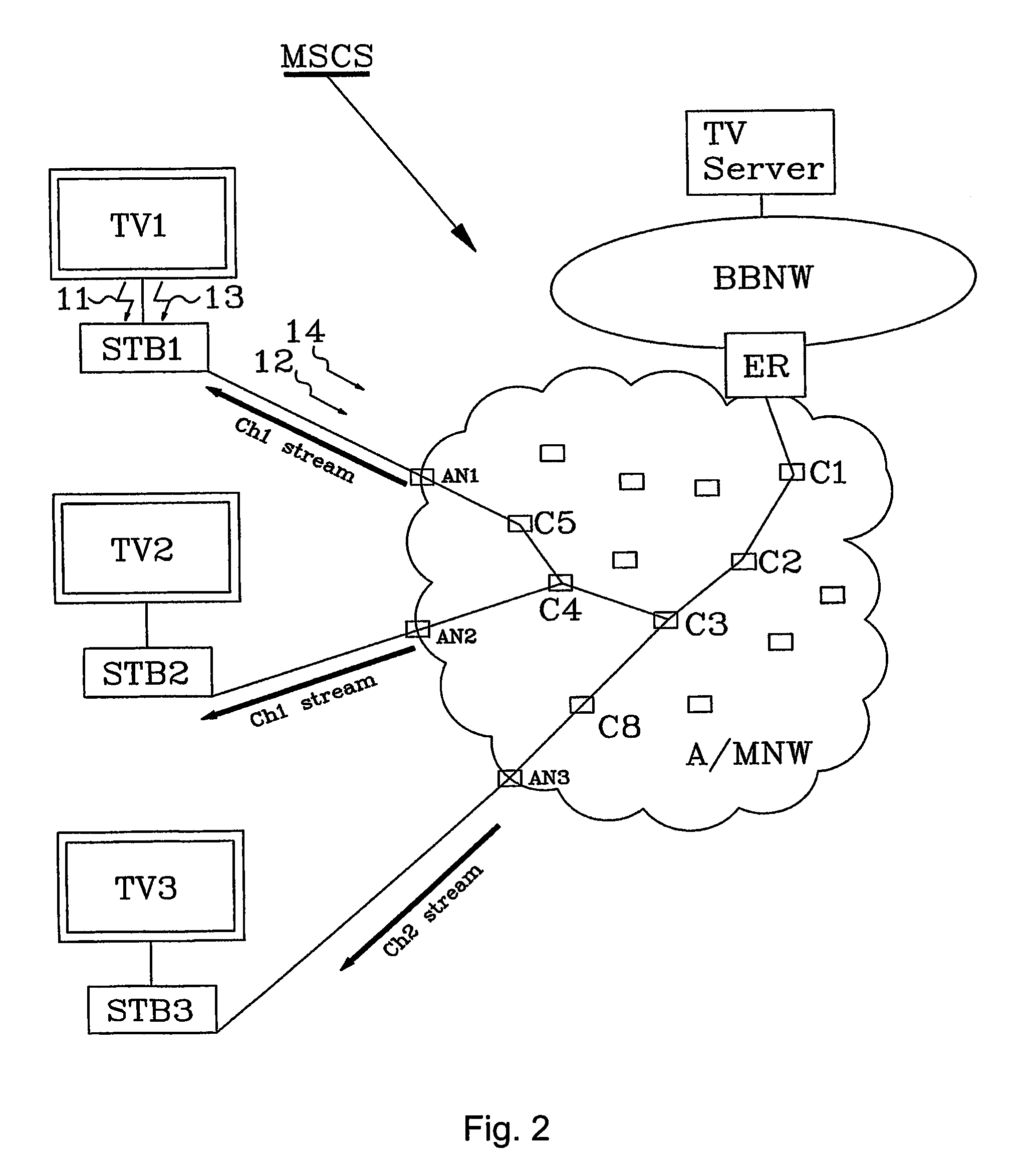Multicast control
a control system and multicast technology, applied in television systems, two-way working systems, data switching networks, etc., can solve the problems of wasting massive amounts of bandwidth and the multicast stream keeps flowing, and achieve the effect of network bandwidth
- Summary
- Abstract
- Description
- Claims
- Application Information
AI Technical Summary
Benefits of technology
Problems solved by technology
Method used
Image
Examples
first embodiment
[0028]As a continuation of this first embodiment, the TV set again is turned on, for example if the set was turned off in the evening and again turned on in the morning. The method then comprises the following further steps:
[0029]The Set Top Box STB1, that continuously monitors the terminal status received from the terminal HDTV1, detects an activation signal 3 from the terminal, meaning that the TV Set again has been turned on.[0030]The Set Top Box sends an IGMP join report signal 4 requesting last viewed channel i.e. CH1 to the AN1 in the Broadband Network. The signal 4 is forwarded from AN1 through the network via for example the concentrators C5, C7, C6 and C1 all the way until it reaches an originating (also called start) point of the CH1 stream in the broadband network. The ER is the originating point of the CH1 stream destined for STB1 i.e. this is the first point along the path were the CH1 stream was found. The IGMP message is only forwarded as far as needed, it stops at th...
second embodiment
[0040]As a continuation of the second embodiment, the TV set again is turned on. The method then comprises the following further steps:[0041]The Set Top Box STB1 detects an activation signal 13, meaning that the TV Set again has been turned on.
[0042]The Set Top Box sends an IGMP join report signal 14 requesting last viewed channel i.e. CH1 to the AN1 in the Broadband Network.[0043]The IGMP join report signal 14 signal is forwarded from AN1 through the network towards ER until it reaches a point where the CH1 stream is found. Since the Ch1 stream still is sent to STB2, C4 is the first (start) point along the path where the CH1 stream was found.[0044]C4 starts multicasting the CH1 stream towards STB1 using the path C4-C5-AN1.[0045]STB1 receives the CH1 stream from AN1 and forwards a rendered TV image to TV1.
[0046]FIG. 3 shows some examples of possible terminal configurations that can be used to put the invention into practice. The figure discloses three configurations A, B and C. The ...
PUM
 Login to View More
Login to View More Abstract
Description
Claims
Application Information
 Login to View More
Login to View More - R&D
- Intellectual Property
- Life Sciences
- Materials
- Tech Scout
- Unparalleled Data Quality
- Higher Quality Content
- 60% Fewer Hallucinations
Browse by: Latest US Patents, China's latest patents, Technical Efficacy Thesaurus, Application Domain, Technology Topic, Popular Technical Reports.
© 2025 PatSnap. All rights reserved.Legal|Privacy policy|Modern Slavery Act Transparency Statement|Sitemap|About US| Contact US: help@patsnap.com



